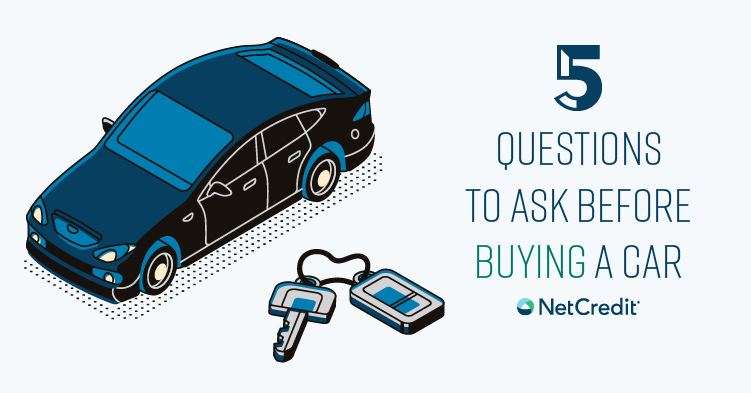Public transportation is one of the most cost-effective methods to get around, but it might not always be available or the best option for your needs. Juggling a job, family, social life and other responsibilities become much harder without reliable transportation.
So, is now is the right time to get a car? Whether you buy or lease, it’s a bigger decision than you might think. Read on for five questions to ask yourself before buying a car.
1. Do You Have Alternative Transportation Options?
Though you may prefer to avoid public transit or use a more convenient method of transportation, a car isn’t the only option. Depending on where you live, a bike, scooter, rideshare or carpool arrangement can help you get where you need to go for far less money than purchasing a car on your own.
2. Do You Have a Stable Job?
Though you may need a car right now, your workplace and/or living arrangement may change beyond your control. When considering factors like the economy, career outlook and location, are there options in case you lost a job? A car payment can become a substantial financial burden if you’re struggling to make ends meet.
3. Are You Ready for the Hidden Costs of Owning or Leasing a Car?
Cars can be a significant financial responsibility, but owning or leasing one might require even more money than you think. Vehicles come with many hidden costs, or incidental financial responsibilities that might not be apparent when planning a budget.
Here are just a few hidden costs associated with owning or leasing a car:
- Interest: If you have a car loan, your credit impacts the interest you pay; good credit can help you save money.
- Tax: Drivers are responsible to pay all applicable taxes on the purchase or lease of a car.
- Registration/licensing/title fees: Whether you purchase or lease the car, you’ll need the required legal paperwork.
- Maintenance: Regular maintenance helps your car run smoothly, but the costs can add up over time. On the other hand, neglecting maintenance can lead to bigger, costlier repairs down the road.
- Insurance: Insurance payments depend on a variety of factors, like the driver’s history and age, in addition to the car’s age, make, model and color.
- Fuel: Cars with better fuel efficiency cost less money to drive.
4. Does a Car Fit in Your Budget?
While your budget and transportation needs will vary, experts recommend spending no more than 10 to 20 percent of your monthly income on transportation needs. This means that if you make $3,000 per month, all car expenses (including any lease or loan payment, insurance, fuel, maintenance and any other costs) should stay under $600. Even though you might have the budget for a car right now, your needs can change in the future.
5. Should You Buy or Lease a Car?
Purchasing a car requires a larger up-front payment, in addition to monthly financing (unless you pay for the car in cash). Your credit score has a big impact on the interest you’ll pay for a car loan, so a good score can help save money. Most new cars lose 60 percent of their value within the first 5 years, used cars are generally more economical than new cars over time. If you already own a car, a trade-in can help reduce the cost of a newer vehicle. Once you’re finished making loan payments, you’ll own the car.
Leasing a car allows you to drive a new car without the full responsibility of ownership. Monthly lease payments may also be less expensive than loan payments since you’re only paying for the time you use the car. Most car leases last around 24 to 36 months, and you’ll always have a monthly payment until you return the car.
Lease agreements also stipulate how you can use the car, like a mileage rate and routine maintenance schedule. While lessees may be required to cover some related costs, most agreements provide some type of warranty for the car. Usage outside of the lease can lead to hefty penalties and fines when you return the car.






